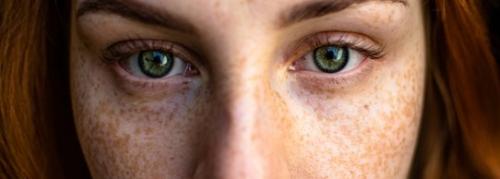Role of Diet in Pigmentation & Dermatologist Treatments for Pigmentation

Pigmentation refers to uneven color areas on the skin. This skin condition can be frustrating for many people. The first step in getting rid of pigmentation is to identify the source. Several variables contribute to pigmentation, including sun exposure, genetics, and pollution. However, when researching the top dermatologist for pigmentation treatment in Ludhiana, we discovered that diet and nutrition also play an important role in pigmentation. Being mindful of what we eat and how it affects our skin can help us make healthier choices and achieve radiant skin.
This blog will address the relationship between pigmentation and diet, emphasizing which foods to eat and which to avoid. We will also discuss some effective dermatological treatments available for treating pigmentation.
The Link Between Pigmentation and Diet
Before looking at which foods to include in your diet for pigmentation, let us first consider how diet affects pigmentation. Some specific nutrients and substances found in food can either worsen or improve pigmentation. For example, Vitamins C and E aid in the fight against oxidative stress, thus reducing pigmentation issues. However, consuming a diet strong in processed foods or sugar might induce inflammation and exacerbate pigmentation issues.
Food for Healthy, Radiant Skin
Green Leafy Vegetables: Kale, spinach, lettuce, etc., are amazing sources of vitamins A and C. It enhances skin health and assists in pigmentation reduction.
Fatty Fish: Fishes rich in omega-3 fatty acids have anti-inflammatory properties. For example, one can include mackerel, sardines, and salmon in their diet as they provide a good amount of omega-3 fatty acids.
Berries: Berries rich in antioxidants protect the skin from getting damaged. One can include blueberries, raspberries, and strawberries in the diet. This will also improve the skin tone.
Citrus Fruits: Lemons, grapes, and oranges are good sources of vitamin C. Including these in your diet will induce collagen production, stimulating skin repair.
Seeds and Nuts: Important nutrients like vitamin zinc and E can be taken from flaxseeds, almonds, and walnuts. These provide healthy skin and can also help in pigmentation reduction.
Foods to Avoid or Limit
Sugary Foods: Foods high in sugar, such as soda, sweets, and processed snacks, can increase pigmentation. These sugary foods increase inflammation, which can cause pigmentation issues to rise.
Uncontrolled Alcohol: Alcohol has several health hazards. It causes dehydrated skin, which can exacerbate pigmentation concerns. Alcohol should be stopped completely as it can have other side effects, too. Thus, to prevent it from exuberating pigmentation, refrain from it.
Spicy Foods: Hot, spicy foods are delicious, but they can trigger inflammation and thus can increase pigmentation.
Drinking a lot of Coffee: Excessive coffee or caffeine intake will make your skin dehydrated. This will impact the pigmentation problems negatively. However, a moderate consumption of coffee is fine.
Processed Foods: Fast food, processed meats, and packaged snacks contain preservatives and additives to increase their shelf life. These foods can deteriorate skin health and can also increase pigmentation problems.
Being mindful about what to eat and what not to do makes a difference in dealing with pigmentation. However, this alone can not treat pigmentation completely. To do so, one might need help from a dermatologist. So, let’s find out how dermatologists can help treat pigmentation and the treatments they provide.
Top Dermatological Treatments for Pigmentation
Laser Therapy: This common pigmentation removal method uses both ablative and non-ablative lasers. Ablative lasers vaporize the superficial skin layers, revealing fresh, pigment-free skin beneath. Non-ablative lasers, on the other hand, help to heat the skin dermis, which breaks away excess melanin deposits while also stimulating new collagen production. To achieve the best skin results, several laser therapy treatment sessions may be required weeks apart.
RF Microneedling: It is the process of delivering radiofrequency radiation to pigmented skin using a device with many fine needles. The device is softly rolled over or pressed on the pigmented skin, causing many micro-injuries and delivering heat to the deeper layers. The body naturally responds by increasing collagen and elastin synthesis and encouraging the formation of new, healthy skin cells, resulting in improved skin tone and texture.
Chemical Peels: Chemical peels contain acid solutions that help remove the skin's pigmented layers. Peels that have been shown to be useful for pigmentation treatment include alpha hydroxy acids (AHA), such as lactic and glycolic acid, beta-hydroxy acids, such as salicylic acid, and phenol or trichloroacetic acid (TCA).
Conclusion
A balanced diet coupled with skincare habits like using sunscreen to protect from UV rays, topped with advanced dermatological treatments, is a key to fighting pigmentation. Committing to this comprehensive approach to skin health that includes nutrition and advanced skin care treatments can help you achieve radiant, clearer, and more confident skin.
To learn more from an expert dermatologist, schedule an appointment with pigmentation specialist Dr. Roopi Khera at The Glo Medispa Clinic. This advanced skin clinic in Ludhiana is outfitted with cutting-edge equipment and techniques, ensuring the desired and excellent results. To enjoy the benefits, visit The Glo Medispa Clinic right away!
Post Your Ad Here
Comments